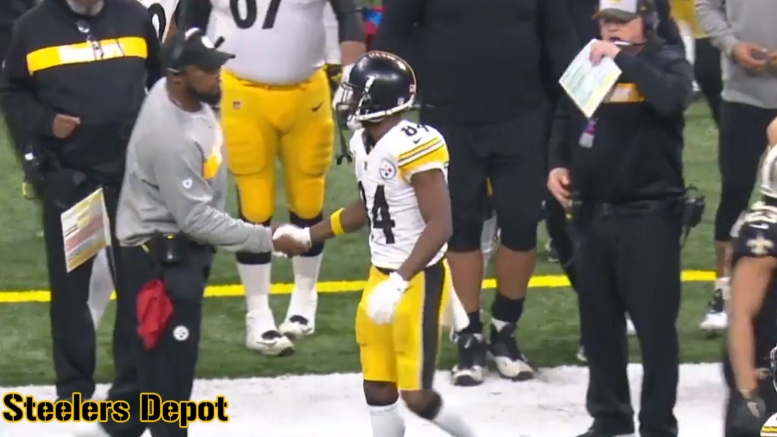It has been true for some time now that the Pittsburgh Steelers have had among the most top-heavy salary caps in the NFL, measured by the percentage of a team’s total cap hit is absorbed by their largest contracts—usually determined by the top five players, but other measuring sticks have been used as well.
While this is not necessarily a bad thing, and other teams in the past have won with this structure, the Steelers haven’t managed to achieve their ultimate goal of winning the Super Bowl under it, and if things continue to develop as they are heading into 2019, they might not even be given the opportunity.
Three of the team’s theoretically largest salaries either are or may not be on the books in 2019. It’s obvious at this point that running back Le’Veon Bell and his over $14 million cap hit will be finding a new home. Ryan Shazier’s playing career is on hold and will be making a minimum salary. Antonio Brown could be traded, though of course he’ll still have that cap hit, or most of it anyway.
The point being made, though, is that, as Ed Bouchette recently wrote, the Steelers’ ‘star system’ could be coming to an end. Against their will.
They really did not want this. They wanted to sign Le’Veon Bell to a long-term contract and tried for two years to do so. They wanted to keep feeding Antonio Brown the ball over the next three years through the end of his contract. They wanted Mike Munchak to coach their offensive line forever. They would love more than anything for Ryan Shazier to return to full ambulatory health. They tried to keep and help Martavis Bryant.
Just take a minute to think about that scenario, had all of this worked out as they planned. An offense that includes Brown, Martavis Bryant, and JuJu Smith-Schuster, with Le’Veon Bell in the backfield, and Ryan Shazier patrolling the middle of the field on defense. Short of an extra cornerback, that looks like quite a stacked team.
And that would have been one very top-heavy team financially. In fact, Bryant would surely be leaving in unrestricted free agency shortly, and the team would be scrambling to restructure contracts right about now without having gotten Bell’s franchise tag value back.
So are the Steelers actually going to move away from an organization that is so dependent upon just a handful of players, which puts them in jeopardy both on and off the field should one of them not deliver in one way or another?
As Bouchette writes, reality may be forcing their hand a bit here, but they could also make that slight shift philosophically on their own.








